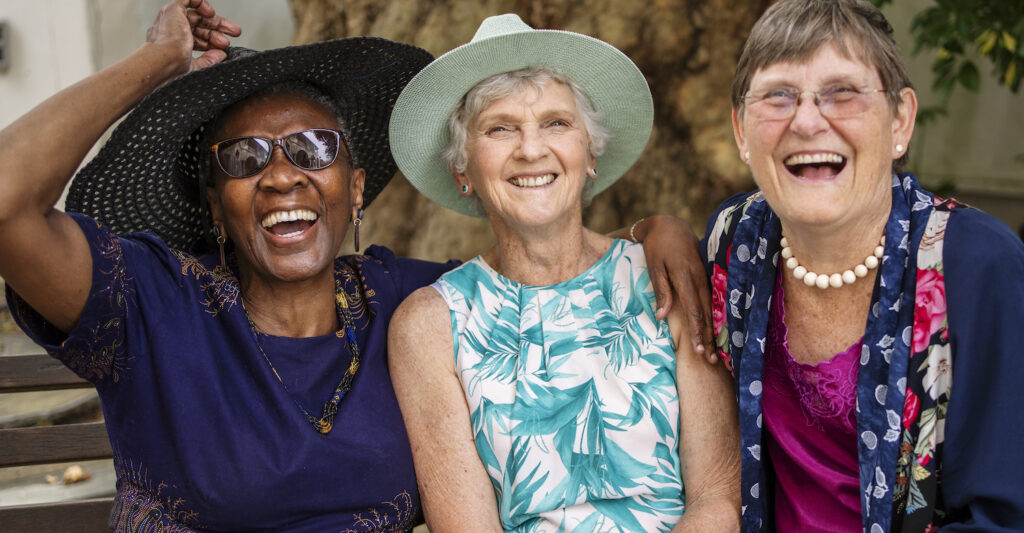
4 New Ways You Should Be Thinking About Diet and Brain Health
It is hard to escape the barrage of messages about how the things we eat and drink impact our brain’s health. The popularity of the topic doesn’t help. The media seems bent on sharing every nugget of news, no matter the size of a study or the credibility of a source. How can we really know what matters, let alone what we can do to help those who look to us for guidance?
While as an expert I always keep a tab on cutting-edge research, I also know those findings do not always hold. I’ve seen many supplements (who remembers phosphatidylserine?) and diet fads come and go. Instead, I watch for the ideas that intuitively make sense, have staying power, and are confirmed over time by additional, larger studies. It also helps to see how such findings integrate with other areas of brain health science, such as physical activity or even social engagement.
What’s important to know right now about brain health and nutrition? Here are 4 topics to think about right now, both for your community and for yourself.
Your gut health impacts your risk for Alzheimer’s disease. An abundance of well-designed studies now demonstrates the significant role gut health plays in our risk for dementia. Researchers have long known that the belly and brain are closely linked along the gut-brain axis. Aging and disease can lead to a reduction of the healthy multitude of microbes in our gut and increased gastrointestinal permeability, which in turn contribute to neuroinflammation and neurodegeneration. Findings even suggest these gastrointestinal changes may be a cause of increased beta-amyloid, a recognized pathology linked to Alzheimer’s disease. Interventions such as gut protective supplements to support the brain-blood barrier as well as including foods high in probiotics, such as yogurt or kimchi, to our meals can bolster the aging gut and potentially reduce our risk for cognitive decline. Expect to see much more from this exciting area of research in the years to come.
Whoa on the wine. Many of us enjoy a good glass of wine with dinner or a bit of bubbly with friends, no matter our age. The perpetual myth that older adults don’t drink as much doesn’t hold out, especially as baby boomers age. In fact, the National Council on Aging reports that nearly half of adults over 65 report drinking alcohol over 2019. So why is wine – actually, all alcohol – on this list? As we age, our liver and kidneys become less efficient at metabolizing alcohol. Alcohol lingers for longer, impacting not only those organs but others, including our brains. This can lead to short-term difficulties with cognitive skills such as focus, processing speed, and memory. Heavy alcohol use can lead to cognitive loss, including Korsakoff syndrome, an alcohol-related memory disorder. And despite what the media says, red wine is not your best source of bioflavonoids. What’s the answer? Set some limits. The issue isn’t consuming alcoholic products, but how much we consume on a regular basis. As we age we should adjust how much alcohol we drink, and be wary of interaction with medications or underlying conditions. Check out the growing industry of high-quality natural wines that contain lower alcohol and sugar, or non-alcoholic brands that offer that drink in hand without the fuss.
Avoid toxins. A few years ago, a study came out showing a whopping 85% of us have detectable levels of DDT in our bodies. In speaking with my mother, she recalled playing in the spray of the pesticide trucks in her suburban neighborhood as a child. Is it any wonder that the pesticide, while banned in the U.S. almost 50 years ago, is still present in our food and environment? What you may not realize is that there is a growing body of literature linking environmental factors such as pesticides, air pollution, and heavy metals with Alzheimer’s disease and other dementias. While we cannot avoid environmental toxins totally, we can take steps to educate ourselves and others and to minimize exposure. Experts recommend simple steps such as avoiding foods produced overseas in countries where DDT is still used or buying organic products. Washing or cooking your produce is also helpful. Consider installing better air filtration systems or avoiding outdoor activities at times when air pollution is high.
Dehydration kills. The science behind hydration is quite established and straightforward. Yet it seems every heatwave a significant number of older adults die from dehydration. Why does this keep happening? Perhaps because older adults and those who care for them don’t know that as we age our ability to sense thirst can be diminished. Simply put, it isn’t that there is a lack of something to drink but rather a lack of recognition that we may need to drink. Educating adults who are at increased risk or the need to stay hydrated even if they don’t feel thirsty, as well as training those who care for them to the science behind dehydration and aging can make a big difference and save lives.



